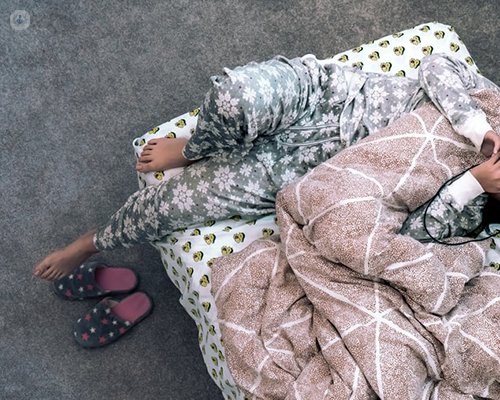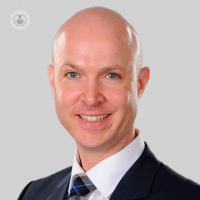What to do during a dizzy spell
Written by:We all experience a dizzy spell at some point where we stand up too fast, for example, and the room feels like it is spinning. Here, one of our expert consultant ENT specialists Professor Owen Judd shares some of his top tips about what to do if you're feeling dizzy or having a dizzy spell.

What causes dizziness?
There are many different causes of dizziness some of which may involve the heart, blood pressure, the brain or the inner ear. Generally speaking, if you're having an acute dizzy spell it is best to sit or lie down and try to take regular sips of water to increase your hydration. Sometimes, it only takes simple rest and sleep to help.
What can I do during a dizzy spell?
Depending on which part of the body is affected in dizziness, there are certain other things that you can do. If you find that you’re lightheaded and dizzy every time you stand after sitting down or when getting out of bed, this may be related to slightly low blood pressure and therefore increasing your water intake can help. If you're having acute dizziness due to problems with the inner ear, there are other things you can do. Let's look at a few examples of ear-related dizziness.
Firstly, a condition called BPPV (or benign paroxysmal positional vertigo) affects the small parts of the inner ear called a semi-circular canal. In this condition, we get acute rotational dizziness or a sudden spinning sensation that tends to occur primarily on lying down and turning over in bed and when looking up or down.
If you're getting this problem, which tends to just last for a few seconds, particularly on turning over or when getting out of bed, one tip is to lie reclined in bed at around 45 degrees. This helps to bring the semicircular canals of the inner air into an anatomical position where they are less likely to cause problems. Ultimately, however, if this condition is not settling, I recommend that that you see your general practitioner (GP) and be referred to an ear nose and throat specialist.
What other conditions can affect the ears and cause dizziness?
Other conditions that may affect the inner ear, such as Meniere’s disease or vestibular migraines, can affect the whole balance system. They can often be helped by looking at our fluid intake, increasing how much water you drink and also by avoiding some common triggers. Dietary triggers, for example, include caffeine and highly-salted or sugared foods, which should be avoided as well as sleep deprivation, stress and anxiety.
All of these things can help but, ultimately, in order to help an acute episode of dizziness, rest, sleep and good hydration is the key.
Do not hesitate to book an appointment with Professor Judd if you’re concerned that you’re living with ear-related dizziness.


